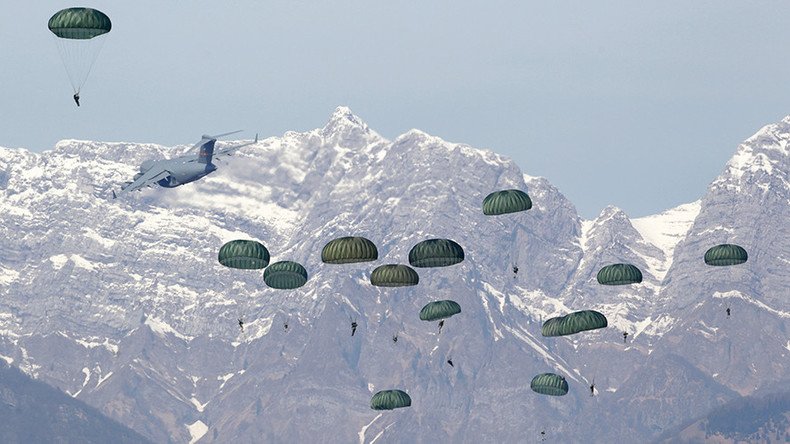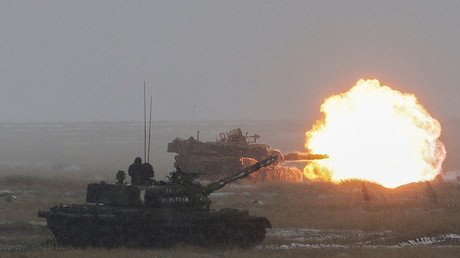NATO seeking to add 2 new commands for fear of ‘potential conflict’ with Russia – report

NATO is reportedly mulling the creation of two new commands designed to improve allied logistics and protect supply lines – all in a bid to address weaknesses in any potential conflict with Russia, says a report by the Wall Street Journal citing sources.
NATO defense ministers will review the new command structures at their quarterly meeting in November, allied officials told the newspaper.
The recommendations reportedly include a new NATO logistics command that would focus on moving people and material more rapidly, and a command for the Atlantic and Arctic Oceans meant to focus on protecting sea lanes, critical for securing Europe from submarine threats.
The WSJ quoted NATO spokesperson Oana Lungescu as saying that the alliance is reviewing its command structure to make sure it is “fit for purpose” and focused on military mobility. “The ability to deploy forces quickly across the alliance is important for NATO’s collective defense,” she said.
“Allies are adapting national legislation to allow military equipment to transit faster across borders and are working on improving national infrastructure,” she added.
Costs and funding for the new planned commands are yet to be finalized, the WSJ says.
The report claims that NATO members have been forced to boost the speed with which they reinforce front-line forces or move to unexpected conflict zones due to the military bloc’s mounting tensions with Russia.
Lt. General Ben Hodges, Washington’s top Army commander in Europe, said earlier this month that “the alliance needs to be able to move as quick, or quicker, than Russian Federation forces if we want our deterrent capability to be effective."
Hodges said NATO needs to know how it can "get that speed within existing peace-time rules for movement on highways, rail and so on" for its deterrent to be effective enough.
In early October, NATO launched a new multinational force in Romania to counter Russia along its eastern flank and keep close tabs on the Russian presence in the Black Sea. The chief of the military alliance branded NATO’s actions as “defensive and proportionate.”
“Our deployments are a direct response to Russia’s aggressive actions in Ukraine,” Secretary-General Jens Stoltenberg said in Bucharest, adding that NATO members are “concerned by Russia’s military buildup close to our borders and its lack of transparency when it comes to military exercises such as Zapad 2017.”
NATO’s military activities near the Russian border have been repeatedly criticized by Moscow, which has accused the alliance of undermining the global security balance with its eastward encroachment and military provocations.
#Russia could deploy more forces to its western regions in response to US deployment of additional forces in #Polandhttps://t.co/g0MjGjj0VJ
— RT (@RT_com) 14 октября 2017 г.
The head of Russia’s parliamentary Defense Committee warned earlier this month that Moscow could deploy more forces, including Iskander-M tactical missile systems, to its western regions in response to the US deployment of additional forces to Poland. This came after reports that the US recently “covertly” sent a new mechanized brigade to Poland, increasing the overall strength of its military group in the Eastern European state to the level of a mechanized division.
Despite frequent military drills of NATO forces close to Russia’s borders, the joint Russian-Belarusian exercises called Zapad-2017 (West-2017) triggered mass media hysteria with overblown figures of the number of troops involved, as well as NATO claims that the exercises lacked transparency. The issue is to be discussed this week between Washington and Moscow, according to the US envoy to NATO.













